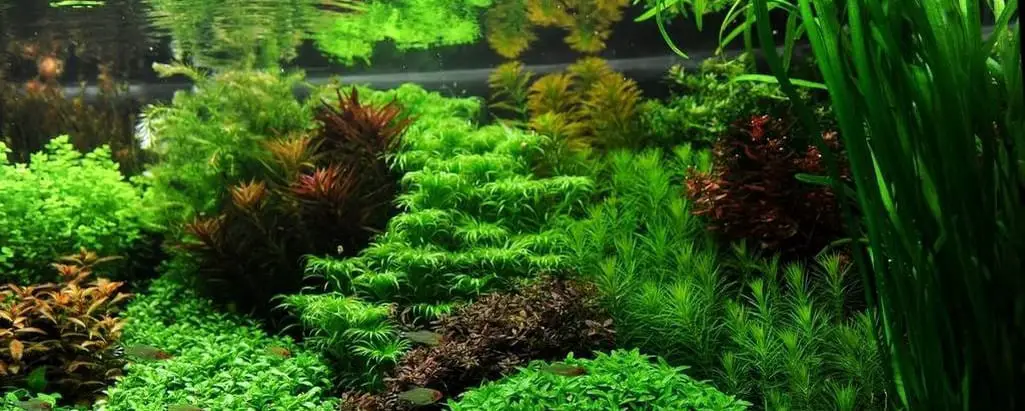Do Guppies need a Filter? Find the Answer here!
Aquarium owners all over the world are determined to make their tank as comfortable an environment as possible for their beloved fish. One important part of this is making sure that tanks are as clean and clear as possible.
Of course, regular tank maintenance is part of the protocol for keeping tank clarity and cleanliness, but filtration is often required as well.
A clean tank is not just needed to make your observations as enjoyable as possible, but it is also intimately linked to the health and well-being of your fish. In general fish like guppies will thrive in a clean environment, where levels of pernicious chemicals like ammonia, phosphate and nitrites are at a minimum.
They will not long survive in dirty waters or waters full of fish waste.
This article will clear up once the question of do guppies need a filter, and give you some guidance on how best to set up your tank for guppies.
Table of Contents
What are Guppies?
Video: “Guppy Fish Care, 10 Things You Should Know About Guppies! Great Beginner Fish!”
Guppies are one of the most desirable aquarium fish for tank owners all over the world. Their alternative names of million fish and rainbow fish may provide a clue as to why they are so sough after. They are a small fish that are available in a huge variety of different colors and shapes.
For example, although many types are translucent with just a small stripe or patch of color, other variants of the species display very vibrant colors such as red, orange or green. This is a magical way to add a real dash of energy and color to your fish tank, without disturbing the ecosystem too much.
They are also a very sociable and playful fish, who like to congregate in large shoals. This is an extremely impressive spectacle, and is quite a treat for any tank owner.
Tropical Fish
Originally guppies are native to freshwater shallows and streams of South America. They are a tropical fish who prefer warmer waters, generally thriving best in temperatures between 20 and 28 C. This is a byproduct of where they come from. However, they are so popular that they have been bred domestically for a long time.
Generations of selective breeding have helped to create some of the most aesthetically pleasing variants of the species that we see on sale today. They are commonly found in community tanks as well, but they should not be placed with much larger, more aggressive species who might present a danger to them.
They are quite small, only reaching about 2 inches at full maturity. In fact, the males of the species are commonly smaller than their female counterparts.
Prodigious Breeders
Guppies are prodigious breeders, and if you are not careful then your well managed tank could soon be overrun by young guppies. In a community tank this will be naturally controlled by larger fish eating the small fry.
But if there are no natural predators present then the guppies could soon breed so much that they cause irreparable damage to the ecosystem. You can avoid this altogether by only installing male guppies in your tank.
What is Filtration?
Video: “Understanding Aquarium Filtration – Mechanical, Biological & Chemical”
Before answering the pertinent question, do guppies need a filter, you need to understand what a filter is and what the purpose of filtration in fish tanks is. Filtration is often required to maintain a healthy and balanced ecosystem. This is because working filters tend to help maintain and manage the magical nitrogen cycle.
Fish often produce nitrogen containing compounds such as nitrites and ammonia as a natural byproduct of metabolizing their food. Unfortunately, in an enclosed confinement like their tank, these compounds can become poisonous to them if the concentration rises to unhealthy levels.
This is where filters kick in. Filters often contain bacteria, which work to reduce the ammonia and nitrites to harmless substances. These bacteria, often referred to as good bacteria to distinguish them from unhealthy bacteria, enjoy a symbiotic relationship with the fish. They thrive on the waste products of aquarium fish, and in return they keep the ecosystem happy and healthy.
Biological Filtration
What is described above is biological filtration. Filters often make use of biological and mechanical filtration, and sometimes chemical filtration. The hard-working bacteria like to cling to surfaces so they can colonize and breed.
As a result, many filters contain very high surface area features, such as bio balls or ceramic rings. This allows you to extract a lot of biological work from a very small volume, where the bacteria thrive.
Mechanical Filtration
Mechanical filtration works more like a common strainer, removing insoluble particulates from the water. This is just as important, because debris and contaminants can decrease the clarity of the water and have a very harmful effect on overall health of the ecosystem. Common filters include built in filters or canister filters, which incorporate all forms of filtration.
What Are Bio Balls? – Top 5 Questions Answered
Do Guppies need a Filter?

Many people state that guppies do not need a filter because they are so small. There is an element of truth to this statement.
Guppies are minuscule fish who do not produce a lot of harmful waste. Hence, in a large environment (such as a large capacity tank), they may not require added filtration.
The answer to whether or not to install a filter may depend on your level of experience in keeping aquarium fish.
For experienced hobbyists, who know intimately how to care for guppies, you may get away with not installing a filter.
But for less experienced beginners, it is considered in your best interests to install a filter for guppies.
This will also depend a lot on the size of your tank. In general, a bigger tank is better, because any impurities can disperse more and in general the levels will be more stable. As a result, your tank will not experience dramatic swings in water chemistry.
The general rule of thumb for sizing aquariums is that you should allow at least 1 gallon of water per fish. Thus, a 15-gallon tank could hold 15 guppies for example.
However, if you have much less guppies per gallon then there might also be an argument for you not needing a filter.
How to keep Guppies without a Filter?
If you do decide to go down the route of keeping your guppies in a tank without a filter, then there are a number of precautions you should take to make sure your fish are still healthy.
By far the most important of these carrying out the nitrogen cycle in your aquarium. The nitrogen cycle was referred to in the discussion on filtration, and it becomes even more crucial in a filter-less set up.
That is because the by cycling through the nitrogen cycle, before you install your precious guppies, you are ensuring that the beneficial bacteria is already established to help breakdown the small amount of waste products that guppies produce. This removes any toxins, leaving only harmless soluble substances.
To perform the nitrogen cycle there are a number of key steps you need to take. First, in your plain tank water, take readings on the ammonia and nitrite levels. This can be done easily using an electronic probe or an aquarium water test kit. Then add some fish food to your tank, and leave it a few days for bacteria to make their appearance.
[amazon box=”B000255NCI”]
After a while you should notice ammonia levels dropping and nitrite levels rising, as the positive bacteria start to establish a chemical equilibrium in your tank. Then, the nitrite levels should also plummet as the nitrite is converted to nitrate, a harmless end product, by other bacteria.
Once you record 0 ppm of ammonia and nitrite, it is safe to introduce your guppies to the tank.
Use Aquatic Plants

If you are pursuing the filter-less route, there are some other actions you can take to make sure that the ecosystem is still of high quality and functioning correctly. For example, installing aquatic plants is a good option.
Live plants can be a supply of food for guppies, but more importantly to add a level of natural filtration. This can help accelerate the nitrogen cycle in your tank.
They will be great at removing some of the harmful toxins from the water, and also help to increase the level of dissolved oxygen in the water, which is crucial for a healthy tank.
There really is no downside to introducing aquatic plants. Suitable aquatic plants for use in guppy tanks include java fern and java moss. You should make sure you are using suitable substrate for your tank.
Conclusion
When setting up your guppy tank, one of the first questions you are going to ask yourself is, do guppies need a filter. The answer is a bit complex, depending on the size of your tank, the amount of guppies you have, and your relative level of experience.
In general, if you are new to this game, consider installing a good filtration system for your guppies. Although it may cost a bit extra at the start, it will provide you with peace of mind and less maintenance in the long run.
It is still very possible to keep guppies without the help of a filter though. You just need to make sure to run the nitrogen cycle in your tank a few times before installing any fish, make sure to clean your tank regularly, don’t overcrowd your tank, and make use of aquatic plants to help provide natural filtration.
If you do all these things, then your guppies can thrive even in the absence of a dedicated filter.




